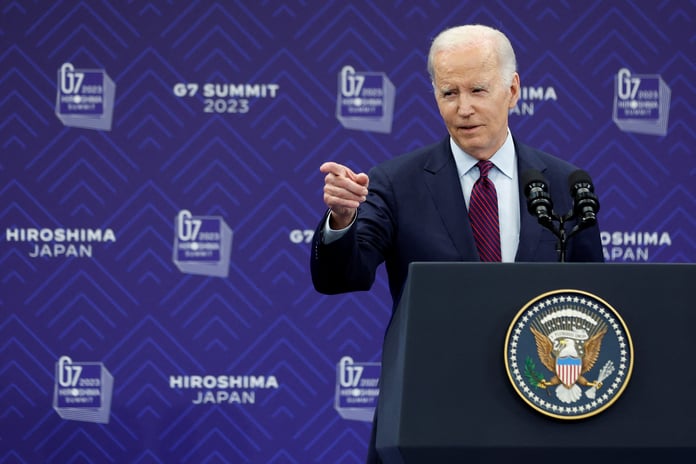In response, the PRC, ahead of the opening of the G7 leaders’ meeting, issued a detailed document pointing out that “the main instigator of coercive diplomacy is the United States, although they try to blame other countries”. “It is Washington that holds the ‘copyright’ on the policy of coercion in the political, economic and cultural spheres”, underlines the report.
The authors of the document recall that the concept of coercive policy was clearly formed in 1971 by Stanford University professor Alexander George, summarizing US policy towards Vietnam, Cuba and Laos. It involves the threat or limited use of force to force another country to change its policy. The toolkit includes sanctions, technological and political blockade, and much more.
The United States, including through sanctions, “strangled” the Japanese microchip industry, as a result of which the country of the rising sun’s share in the world semiconductor market collapsed by 50 at 10%.
Striking examples of such a policy are the American economic blockade of Cuba, introduced since 1962 and still in force, the sanctions against Iran which have been steadily extended since 1979, and the sanctions against Venezuela and DPRK since 2006. It is pointed out that in many countries these sanctions have led to a humanitarian crisis. Some of them, in particular, have been denied access to the medicines needed to combat the spread of COVID-19.
The talk of the town is the growing sanctions pressure on Russia since 2014. The report’s authors calculated that today the sanctions directly affect more than 2,500 Russian companies, politicians and entrepreneurs. The document did not have time to include the new package of anti-Russian measures announced on May 18 by Washington. Restrictions will apply to approximately 300 businesses, vessels, aircraft and individuals. In addition to sanctions directly against Russia, the package will include restrictions on around 70 companies in other countries associated with the Russian Federation.
China has also been badly affected by the US policy of coercion. In 2018, Washington started a trade war with China and is now trying to organize a technological blockade of China. More than a thousand Chinese companies – including big ones such as Huawei and DJI – are on various US sanctions lists. Sanctions are often imposed on the pretext of guaranteeing human rights, which the PRC considers to be interference in internal affairs.
The United States applies a policy of coercion even on its allies, underline the authors of the report. For example, the United States, including through sanctions, “strangled” the Japanese microchip industry, as a result of which the country of the rising sun’s share in the world semiconductor market fell. collapsed from 50% in the 90s of the last century to 10% today.
In addition to economic pressure and sanctions, the United States also has a rich toolbox of direct or indirect interference in the internal affairs of other countries: these are proxy wars, targeted arms deliveries , the formation of rebels and the organization of color revolutions. From 1947 to 1989, the United States conducted 64 covert operations and six overt regime change operations in other countries, the report noted.
At the service of the American policy of coercion are intelligence agencies and diplomatic structures, non-governmental organizations, the media and, of course, the powerful American military machine. The annual US military budget accounts for 40% of global defense spending. The United States has more than 800 military bases in 159 countries, where 173,000 soldiers are stationed, recalled to Beijing. Throughout its history, the United States has conducted approximately 400 military operations outside its borders. Since 2001, according to Brown University estimates, US military operations have claimed 929,000 lives worldwide and 38 million people have become refugees.
US economic and technological blockades, unilateral sanctions, political isolation, direct use of military force threaten the whole world
The report’s authors conclude that “the United States is a classic example of coercive policy.” US economic and technological blockades, unilateral sanctions, political isolation and the direct use of military force pose a threat to the world. whole”, the authors of the abstract of the document.
In conclusion, they recall that American political scientists themselves describe the essence of American coercive diplomacy as follows: “You are either with us or against us. America is the leader, and its allies must follow. Attempts to doubt American superiority will be punished. ”
Read the Latest Science and Technology News Today on The Eastern Herald.


